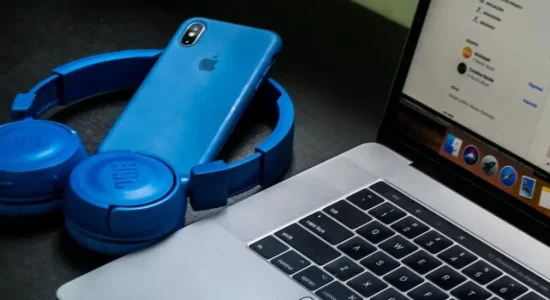Vending machines have been in the business for some time now, and the best thing is that you don’t even need a big startup cost. But is the concept of vending machine passive income real? Let’s dig into that.
Vending machine business can be a good source of passive income. Once you have installed the machine in a good location, all you have to do is restock it once a month, and enjoy those bucks you make out of your business.
Now isn’t that an amazing idea for a side hustle? I bet it is.
In this article, I’ll break down the steps to get your vending machine business up and running.
Read on to know more.
What Is a Vending Machine Business?

In the vending machine business, business owners set up their devices in different areas and make money after each purchase. Vending machines are coin/cash/credit card-operated devices that give goods (potato chips, juice boxes, chocolates, etc) to consumers who insert money in the given slot.
The item they want has a tiny price tag in the front so consumers can insert the required amount to avail it.
Machine operators earn by strategically placing them in areas with maximum foot traffic so more people are likely to use them.
As an operator, it is their job to make sure that the machine is placed at a spot where they’re likely to achieve the highest profit income.
How Much Does a Vending Machine Owner Make?
On average a regular vending machine in a mediocre location can make the owner around $35/week ($150/month). Whereas vending machines that are well stocked and placed in congested areas can make up to $400 a month.
There are millions of vending machines in the United States alone that generated annual revenue of over $23 billion in 2021. So there’s huge potential for you too.
For more detailed information, read my article on Getting Rich from Vending Machines? (10 Steps To Wealth)
Factors that Affect the Vending Machine Business Profit
Vending machines have flexible income rates. They could make less one month and make a lot the other. Here are some of the key factors that play a role in allocating the percentage profit.
#1 Location
Where your machine is placed determines how many people are likely to use it. The most common places for placing these machines are:
- University/school cafes
- Workplaces
- Apartment complexes
- Hospitals
- Nursing homes
- Hotels
- Auto repair shops
- Retails stores
These are the profitable locations because they have the most foot traffic, which is required for increased sales. When kept in areas such as these, you can expect a lot of people to look for a quick way to ease their hunger.
#2 Items In the Machine
This may seem pretty obvious but the thing is, there are a lot of things you can put into your vending machine. As I explained above, different items set the price you charge.
A vending machine can have nuts and candy in it or, it could also give assorted snacks. So if you keep soda in yours, a regular soda would cost anywhere around $2. If the machine makes 10 sales that’s $20 in one day.
I’ll list down some of the most popular vending machine snacks that are bound to make good sales:
- Snickers bars
- Granola bars
- Chips
- Pepsi or Coca-cola cans
- Water
- Iced tea
- Chocolate bars
#3 Recurring Business Costs
While your $20 per day profit is amazing, the major setback is the recurring payments you have to make every month. These include the rent you pay for keeping your machine, gas money for restocking the machine and any taxes levied.
All this would lower your profit cent by cent. Eventually, you’re left with around one-quarter of the daily profit which sets you down by a lot.
» Read my blog post: Are Food Trucks a Good Investment? What Experts Say
Starting Your Own Vending Machine Business – A Simple Guide

The first thing you need to understand is that a vending machine business is not like other businesses. Since this is a passive income stream, certain aspects differ from what a normal business would contain.
One such thing is that you don’t need to actively take care of the asset that’s making you money. Maintenance here and there is a given but to go and sit there every day isn’t necessary at all.
If you are considering starting a vending machine business it’s important to make sure you start with solid budgeting and business plans.
Passive or not, this still requires some amount of dedication and passion at the start, the rest is just maintenance and restocking.
Here’s a list of all the points you should thoroughly examine before setting on getting your first machine.
- Budget
- Location of your machine
- Financing
- Suppliers
#1 Fix a Budget
Starting a vending machine business doesn’t require as much capital as other small businesses.
For starting a vending machine business, your major investment will be getting the machine itself. Most refurbished vending machines don’t cost any more than $2000. However, new machines can cost up to $10,000.
A tip many experienced vending machine purchasers recommend is getting a used or refurbished machine. So long as it works, new or old doesn’t concern anyone.
Aside from the machine, inventory and stock costs are also an aspect you should set through.
#2 Pick a Location
The kind of vending machine you have matters but the place where you decide to keep it matters most. Therefore, before actually purchasing the machine you should have at least 3 different spots in mind.
These spots need to be high in foot traffic, need to be good, and shouldn’t be too high on the rent too. Experts advise you to think of all the locations you’ve bought from a vending machine.
Once that gives you a gist of what’s needed then set out and scout your location. Ideally, these work best near schools, colleges, offices, etc.
#3 Find the Right Machine
There’s a general perception that vending machines only sell snacks and soda. Now that I’m on the topic of helping you set up a vending machine business, you need to be aware that there are more alternatives.
Vending machines are divided into four categories. When choosing the machine whose products would be the most popular with your target market, think about all four types.
I’d suggest you start with one or two vending machines with a specified market emphasis, regardless of the sort of vending machine you choose.
As a result, you’ll be able to gradually learn about common stock and site-specific patterns, and add more machines as needed.
Here are the four vending machine options:
- Food and beverage vending – They make up the majority of the US market and have sodas, snacks, and candies in them.
- Specialty vending – Vending machines are not limited to food. The specialty vending machines have different items in them like tech appliances, beauty products, automobiles, etc.
- Bulk vending – Bulk vending stores gumballs, stickers, or rubber balls, takes very little capital, and has low maintenance expenses.
- Franchise – There’s always an option of buying a franchise if you don’t want to go into the hassle of starting your business from scratch.
#4 Look for Finances
As I said, the main cost you have here is the actual machine, itself. While this isn’t much of a million-dollar purchase it still is a thousand-dollar one.
You don’t require much capital but if you find gathering the money you could always go for a short-term loan or equipment financing.
These are the two options where you can easily ask your local bank to lend you money which you can then repay in a given period.
For short-term loans, you must already have a business account and must have a financial history to prove it. Whereas for equipment financing, the amount you lend depends on the price of your equipment.
The equipment you do end up buying acts as collateral in the event of defaulting your loan.
#5 Find a Supplier
After you’ve bought your vending machine you’re halfway done with setting up your business. The next most crucial part is to get a supplier. Product selection is a major factor in increasing sales.
Rather than opting for the usual snacks and beverages, you should instead look for local and site-specific needs. What are you planning on keeping your machine needs? If the answer is cans of sodas then you get a soda.
A personal tip I’d give though is to opt for any sort of beverage.
As the beverage industry goes beyond the horizons of coke and juice to wider scale options, this may be your most profitable choice by far, and in the US water and iced teas are popular drinks, so you also have a chance there.
Pros of Starting a Vending Machine Business

Vending machines have certain advantages that make the business more appealing to invest in. At the same time, every pro has its downside.
Here I’ll discuss the different benefits and struggles one may face when starting their own vending machine business. From low capital to more profitability, here’s the deal with vending machines.
» Read my blog post about: How To: Start an Ice Vending Machine Business (Easy Guide)
#1 Starting Small Reduces Risks
One of the greatest benefits of starting a small-scale business is that the level of financial risk is lowered. When you buy just one machine at a time, your risk of it not being profitable is there but minimal.
Plus, the single machine can also give you an idea of the profit you’ll be able to make. Then you can slowly increase your amount, once you’ve learned if your type of vending machine is making good business.
Let’s say after a while you realize that this isn’t the niche for you. There doesn’t have to be any explanation just that you can’t manage this well. In that case, you can also quit the business, and sell your machine to start a new venture.
#2 Control Your Business Growth
Success depends on what you have to offer. If you decide to stock the machine with items that are in regular use, you’ll have more sales. If you put something quirky like bubble gum then you won’t have as many sales.
A vending machine is one of the businesses that run themselves.
All this depends on market research and trends in the industry. It requires a bit of research but once gotten the hang of it, becomes quite beneficial for your machine.
Most operators advise selling only products that cost about a third of what you sell them for. The resulting profit should be $1.
#3 Low Start-Up Costs
Unlike the stereotypical business startups that require thousands and millions of dollars, this only requires a minimal amount. The first-time investment is also the only investment you’ll make throughout the span.
Even college students can opt-in for a handful of passive income.
Setting up a vending machine requires no more than a couple of thousand dollars, which I have talked about earlier in the blog. Things like these are perfect for figuring out if the entrepreneurial life is for you without quitting your job.
» This could also be something for you: $20,000 Per Month! – Owning a Billboard for Passive Income
Cons of Starting a Vending Machine Business

#1 Profitability Is Directly Proportional to Scale
While you only need to start the business with one machine, actual profit comes from having two or multiple machines. With one machine, you may make as little as only $5 per week.
That’s just going to get you enough to have some ice cream. Even if you crank it up to $25, that’s still not a wow amount. It’ll take you approximately 3 years to buy another machine with the profits.
While people do exaggerate the business’s profit, this isn’t the case at the start.
#2 The Grind
This is a passive income stream but that doesn’t mean that you can set your machine and go bye-bye. You have to frequently work and take care of maintenance, too.
Also, to have increased profit you may have to frequently move the machine to multiple locations. This is until you can find the peak location, ever. There’s the process of stocking and inventory too.
There’s also adjusting to product offerings. Figuring out a formula that works best for your machine requires time and patience. Once you find it, then you can expand it. However, all this is hours and hours of footwork and effort.
#3 Competition for Prime Locations
It’s no hidden fact that for your vending machine to be effective it needs to be in a well-populated location. And not even just populated, but it has to have people willing to purchase from the machine.
All this requires extensive research and long, long drives across town. The competition you have nearby also affects your profits. If you’ve big food shops nearby, then people will prefer that over your machine.
Statistically, blue-collar workers buy the most items from vending machines. So try to find a location with the most blue-collar workers. You also don’t want an already saturated area.
Instead, you want a place that’s new and has few prior vending machines.
»Maybe this also could be of interest to you: $25,000 Per Month? Here’s How Much Laundromat Owners Make
Wrap Up
So the vending machine breakdown comes to an end. The niche is highly popular in the coming days, with all the innovations people have made with them.
Although some might argue that vending machines are going extinct, that isn’t the case.
If you put your heart into it, then even the dead out-of-trend niches can work. What matters is how much time you’re willing to spend on it.







